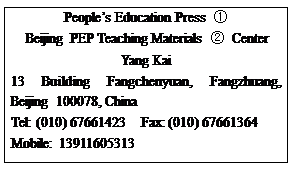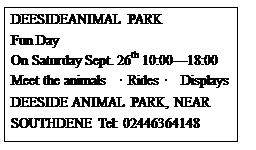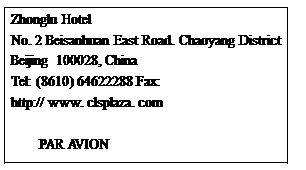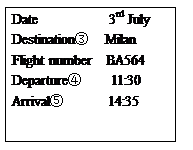题目内容
At East China University of Science and Technology,students will get a coupon (优惠券) if they eat up their food.Students can collect coupons and exchange them for small gifts, such as books, magazines, mobile phone covers and hand warmers.
"It's been such a surprise," said Liang Zahaoyun, 19, a student at the university in Shanghai. "It has given us one more motivation to finish our food. "
The measure is part of a national "eat-up" campaign(行动) which is organized by students to deal with food waste on campuses(校园).
Why only on campuses, you might ask? Because according to a report by Xinhna News Agency,students waste twice as much food as the national average(平均).
The campaign on campus food waste is receiving attention across the country.
"The aim of the campaign is not only to encourage students to finish their food. We hope it can also encourage students to choose a more environment-friendly and healthy lifestyle," said Tao Siliang, secretary of the Youth League Committee at Shanghai University.
But some school food is poorly prepared, so students do not like to finish it all. Some schools have taken notice of this and they are taking measures to improve it.
"I'm glad that we've reduced food waste since the 'eat-up' campaign began. But if we call on students to waste less food, we should also improve the service and food standard on campuses." said Tao
- 1.
From Paragraph l,we know that the students will get a coupon
- A.when they eat school food
- B.after they exchange gifts
- C.if they finish all their food
- D.if they collect the waste
- A.
- 2.
The "eat-up" campaign is carried out on campuses because ________
- A.students get a good education
- B.schools offer small gifts
- C.students waste too much food
- D.school food is more delicious
- A.
- 3.
The purpose of the campaign is mainly to ________
- A.improve the school food standard
- B.encourage a greener and healthier lifestyle
- C.receive attention from the society
- D.further improve the service in universities
- A.
- 4.
The best title for this passage may be _______
- A.Enjoy Your Food!
- B.Reduce Waste on Campus
- C.Meals in Universities
- D."Eat-up" Campaign on Campus
- A.
CCBD
试题分析:短文大意:这篇短文主要介绍了在华东科技大学开展的一次吃完食物活动,鼓励更加绿色和更加健康的生活方式。
1.根据At East China University of Science and Technology,students will get a coupon (优惠券) if they eat up their food.描述,可知选C
2.根据Why only on campuses, you might ask? Because according to a report by Xinhna News Agency,students waste twice as much food as the national average(平均).描述,可知选C。
3.根据"The aim of the campaign is not only to encourage students to finish their food. We hope it can also encourage students to choose a more environment-friendly and healthy lifestyle," 描述,可知选B。
4.这篇短文主要介绍了在华东科技大学开展的一次吃完食物活动,故选D,在大学的吃完食物活动。
考点:考查健康环保类短文阅读。
试题分析:短文大意:这篇短文主要介绍了在华东科技大学开展的一次吃完食物活动,鼓励更加绿色和更加健康的生活方式。
1.根据At East China University of Science and Technology,students will get a coupon (优惠券) if they eat up their food.描述,可知选C
2.根据Why only on campuses, you might ask? Because according to a report by Xinhna News Agency,students waste twice as much food as the national average(平均).描述,可知选C。
3.根据"The aim of the campaign is not only to encourage students to finish their food. We hope it can also encourage students to choose a more environment-friendly and healthy lifestyle," 描述,可知选B。
4.这篇短文主要介绍了在华东科技大学开展的一次吃完食物活动,故选D,在大学的吃完食物活动。
考点:考查健康环保类短文阅读。

练习册系列答案
相关题目
Come and see the Indian elephants and the new tigers from Northeast China. The beautiful birds from England are ready to sing songs for you, and the monkeys from Mount EMei(峨眉山)will be happy to talk to you. The lovely dogs from Australia want to laugh to you. Sichuan pandas will play with balls for you. The giraffes from Africa are waiting to look down on you.
| Tickets Opening Time Grown--- ups : ¥ 3 9:00 a.m. --- 4:00 p.m. on weekdays Children: Over 1.2 m : ¥ 2 Under 1.2m: Free 10:00a.m.—3:00 p.m. on weekends Keep the zoo clean! Do not touch, give food to or go near the animals. |
根据短文内容,选择最佳答案,并在答题卷上按要求作答。
- 1.
How much does Mr. Smith have to pay if he visits the zoo with his 14—year—old son?
- A.¥ 3
- B.¥ 4
- C.¥ 5
- D.¥ 6
- A.
- 2.
At which of the time can we visit the zoo?
- A.8:30 a.m. Wednesday
- B.9:30 a.m. Friday
- C.3:30 p.m. Sunday
- D.5:00 p.m. Tuesday
- A.
- 3.
Which of the following can we do in the zoo?
- A.To touch the monkeys
- B.To give some food to the animals
- C.To go near the tigers
- D.To watch the animals carefully
- A.
- 4.
How many kinds of animals are there in the passage?
- A.Four
- B.Five
- C.Six
- D.Seven
- A.
- 5.
What is this passage?
- A.An advertisement
- B.A speech
- C.A story
- D.A song
- A.
Steve Jobs was one of the fathers of the personal computing time and the founder(创建者) of Apple. He was also one of the great persons of the information age. Here are some of his greatest contributions.
Apple Ⅱ Jobs and Steve Wozniak founded Apple Computer Company in 1976. A year later, the apple Ⅱ was invented. This was the world’s first personal computer. | The iMac Under Jobs’ leadership, Apple introduced the iMac computer in 1998. The iMac became the first machine, which offered a CD-ROM slot.(插口) |
 The iPad By 2010, Steve Jobs was sure the world was ready to have a computer that would be great for watching movies and playing games. The touch-sensitive iPad is a great success. |  iPhone 4s It came out on October 4, 2011 in America. It looks like iPhone 4. It has a larger and wider screen and a slimmer but wider case. It has a better camera and faster data transfer(文件处理)speeds. |
- 1.
When was the Apple II invented?
- A.In 1976
- B.In 1977
- C.In 1997
- D.In 1998
- A.
- 2.
Where did the iMac first come out?
- A.In China
- B.In UK
- C.In USA
- D.In UN
- A.
- 3.
Which one was the oldest machine of the four?
- A.The Apple II
- B.The iMac
- C.The iPad
- D.The iPhone 4s
- A.
- 4.
From the passage, we can know that the iPad _______
- A.has a better camera
- B.is the first personal computer
- C.has a CD-ROM slot
- D.is great for watching movies
- A.
- 5.
According to the passage, which of the following is TRUE?
- A.iPhone 4s'screen is the same size as iPhone 4
- B.iPhone 4s has a larger and slimmer case than iPhone 4
- C.iPhone 4s uses less time to transfer data than iPhone 4
- D.iPhone 4s with an improved camera is cheaper than iPhone 4
- A.




 30 (for a child)
30 (for a child)